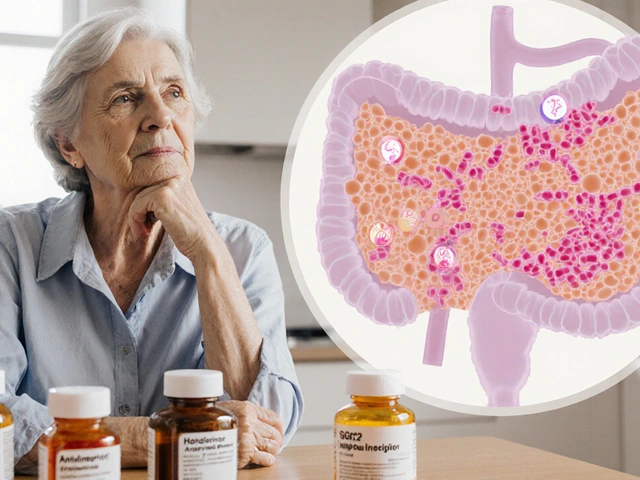Chlamydia and Ovarian Cancer: Key Facts You Should Know
Chlamydia is the most common sexually transmitted infection in the world, but most people think of it only as a cause of pelvic pain or infertility. A growing number of studies are looking at whether that same infection could also raise the chance of ovarian cancer. Understanding the connection helps you make smarter choices about testing, treatment, and long‑term health.
How chlamydia might influence ovarian cancer risk
When chlamydia bacteria stay in the reproductive tract for months, they trigger chronic inflammation. Inflammation is a known driver of many cancers because it can damage DNA and create an environment where abnormal cells grow unchecked. Researchers have found higher levels of inflammatory markers in women who have had repeated chlamydia infections, and those markers overlap with the pathways that lead to ovarian tumor formation.
Another clue comes from the way chlamydia interacts with the immune system. The infection can suppress certain immune responses that normally hunt down early‑stage cancer cells. If the immune system is distracted, tiny changes in ovarian tissue may go unnoticed and develop into a tumor over time.
It’s important to note that the evidence is still emerging. Large‑scale, long‑term studies are needed to confirm the exact risk size. However, the signal is strong enough that doctors now ask about a history of chlamydia when assessing a woman's overall cancer risk profile.
Practical steps to protect yourself
First, get tested regularly. Most health agencies recommend chlamydia screening at least once a year for sexually active women under 30, and more often if you have new or multiple partners. Early detection means you can take antibiotics quickly, stopping the infection before it causes lasting inflammation.
If you test positive, finish the full course of prescribed antibiotics even if symptoms disappear. Incomplete treatment can leave hidden bacteria that keep the inflammatory cycle going.
Second, practice safe sex. Condoms reduce the chance of chlamydia transmission by about 70 % and also protect against other infections that may compound cancer risk.
Third, stay on top of routine gynecologic care. Pap smears, pelvic exams, and if you’re over 40, regular ovarian cancer screening (ultrasound or CA‑125 blood tests) give doctors more data points to catch anything early.
Finally, adopt an anti‑inflammatory lifestyle. A diet rich in fruits, vegetables, and omega‑3 fatty acids, regular exercise, and avoiding smoking all lower systemic inflammation, which may offset any lingering effects from past infections.
Bottom line: while chlamydia alone probably won’t cause ovarian cancer, the infection can create conditions that make cancer more likely. Knowing your infection history, getting tested, and treating promptly give you the best defense against both infertility and potential cancer down the line.
Chlamydia and Ovarian Cancer Risk: Evidence, Symptoms, and What To Do Now
Does chlamydia raise ovarian cancer risk? Clear UK guidance on the evidence, personal risk, testing, symptoms, and what to ask your GP.






